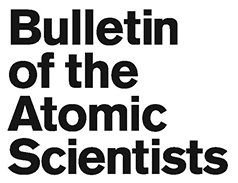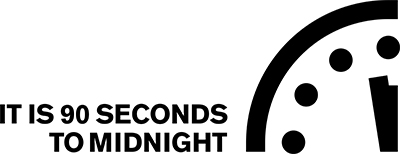
Bulletin of the Atomic Scientists, September 19, 2024
Posted: 20th September 2024
FRANÇOIS DIAZ-MAURIN, JOHN MECKLIN
The experts comment: Key nuclear questions that the US presidential candidates should answer
As a service to citizens and the journalists who will cover the final weeks of the campaign, we asked leading nuclear policy experts to suggest questions that the US presidential candidates should be asked about the nuclear threat and how best to reduce it. Stay tuned for more entries in the series. Read more.
SIEGFRIED S. HECKER
Question for the candidates: Has Russia’s war in Ukraine changed your view of the role of nuclear weapons?
The former director of Los Alamos National Laboratory proposes a series of nine questions on great power competition, the global nuclear order, proliferation, and the role of nuclear energy that journalists and citizens should ask the 2024 US presidential candidates. Read more.
HENRY SOKOLSKI
Question for the candidates: What will you do if Iran gets the bomb?
The executive director of the Nonproliferation Policy Education Center proposes three nuclear questions about Iran, China, and reactors in war zones that journalists and citizens could profitably ask the 2024 US presidential candidates. Read more.

Join us for Conversations Before Midnight with Featured Speaker David Ignatius
On November 12th, the Bulletin’s annual gathering will be held in Chicago.
Convening a week after the US elections, the Bulletincommunity will come together and discuss what the results mean for our collective future.
This year’s featured speaker, David Ignatius, will be an invaluable leader in this conversation as a longtime political analyst and prize-winning columnist for The Washington Post who has covered world politics for nearly four decades.
PHILLIPS P. O’BRIEN
The new red line: Why a prolonged conflict in Ukraine makes a nuclear attack more likely
Assumptions on reaching the threshold of nuclear weapons were overwrought, but those assumptions have made a nuclear conflict far more likely. Read more.
RAY HUGHES
Nuclear power: future energy solution or potential war target?
Many countries are exploring advanced nuclear reactors as a solution to the climate crisis. However, the proliferation of small reactors may heighten the risk of wartime attacks like those witnessed in the Russia-Ukraine war. Read more.
QUOTE OF THE DAY
“There is a lot to learn from this event: Climate change is causing new natural phenomena we could not even dream of just a year ago. There are still plenty of unresolved mysteries out there waiting for the next generation of geoscientists to unravel.”
— Kristian Svennevig, senior researcher in the Department of Mapping and Mineral Resources with the Geological Survey of Denmark and Greenland, “A landslide linked to climate change ‘rang’ the Earth for 9 days, researchers say,” NPR
Your gift fuels our mission to educate and empower. Together we will work to ensure science serves humanity.


 Illustration by Thomas Gaulkin / Shutterstock
Illustration by Thomas Gaulkin / Shutterstock